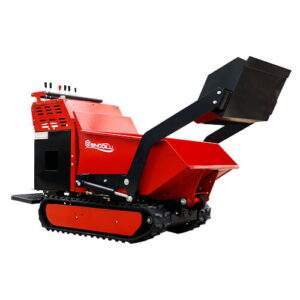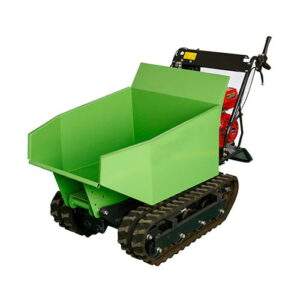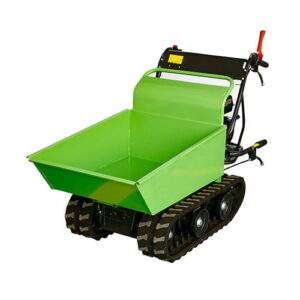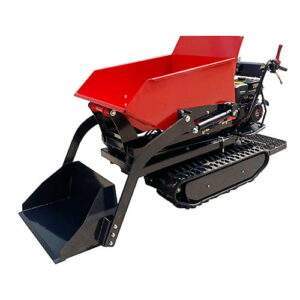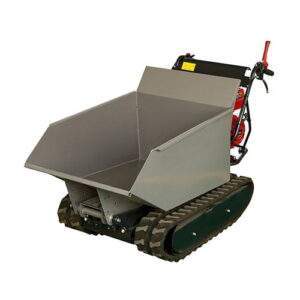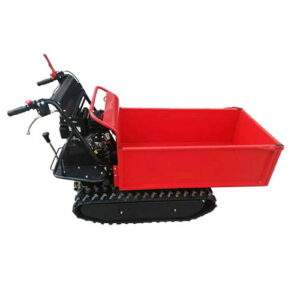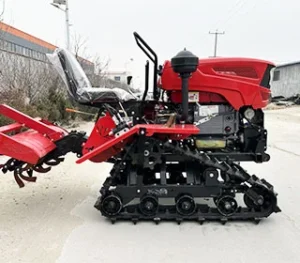How Mini Loader Dumpers Improve Efficiency on Construction Sites
Introduction
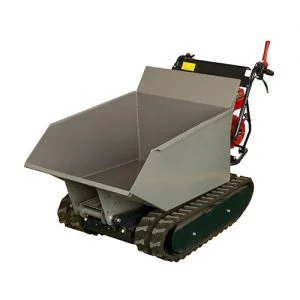
Efficiency and productivity are critical in the construction industry, where time and resource management directly impact project timelines and costs. Mini loader dumpers have emerged as indispensable tools in enhancing efficiency on construction sites. Their compact size, combined with robust performance capabilities, makes them ideal for maneuvering in tight spaces and navigating rough terrain. This blog explores the multifaceted advantages of mini loader dumpers and their transformative impact on modern construction practices.
Understanding Mini Loader Dumpers
Mini loader dumpers, commonly known as dumpers, are specialized vehicles designed for transporting and dumping materials on construction sites. Unlike traditional dump trucks, small loader dumpers offer a smaller footprint without compromising on load capacity or operational efficiency. They typically feature articulated steering, which allows for greater maneuverability, and hydraulic lifting mechanisms for controlled dumping of materials. These attributes make them versatile assets across a spectrum of construction applications.
Applications in Construction
The versatility of small loader dumpers extends across various construction tasks, enhancing operational capabilities and project efficiency:
- Excavation and Landscaping: Small loader dumpers excel in transporting soil, gravel, and other materials over uneven or narrow terrain where larger vehicles struggle to access. Their compact size and articulated steering enable precise maneuvering in confined spaces, such as residential backyards or urban construction sites.
- Building and Infrastructure Development: In construction projects ranging from residential buildings to large-scale infrastructure developments, small loader dumpers facilitate the efficient movement of construction materials. They are instrumental in transporting concrete, bricks, and debris, ensuring timely delivery and placement at designated sites.
- Utility Installations: Small loader dumpers play a crucial role in utility installations by transporting trenching materials, backfill, and equipment to excavation sites. Their agility and maneuverability make them essential for navigating around existing infrastructure and ensuring efficient workflow in utility projects.
Advantages of Mini Loader Dumpers
The adoption of small loader dumpers offers several distinct advantages that contribute to their widespread use and effectiveness on construction sites:
- Maneuverability: Mini loader dumpers are designed to operate in confined spaces and navigate challenging terrain with ease. Their articulated steering allows for sharp turns and precise positioning, minimizing the need for additional maneuvering space.
- Versatility: These machines can be equipped with a variety of attachments, such as buckets, forks, and cranes, to accommodate different construction tasks. This versatility enhances their utility across diverse project requirements, from material transport to lifting and loading operations.
- Operational Efficiency: Small loader dumpers typically feature quick cycle times and efficient fuel consumption rates compared to larger construction equipment. Their compact design and powerful performance capabilities contribute to enhanced operational efficiency, reducing downtime and optimizing productivity on construction sites.
Case Studies and Performance Metrics
To illustrate the practical benefits of mini loader dumpers, consider the following case studies from recent construction projects:
Residential Construction Project
In a residential construction project requiring excavation and landscaping, small loader dumpers were utilized for transporting and distributing soil and gravel across the site. Compared to traditional methods involving manual labor or larger machinery, the small loader dumpers significantly reduced operational time and labor costs.
| Metric | Mini Loader Dumper | Traditional Methods |
|---|---|---|
| Time Saved (hours) | 50 | 20 |
| Fuel Efficiency (liters/hour) | 5.7 | 8.3 |
| Cost Savings (%) | 15% | 8% |
Infrastructure Development
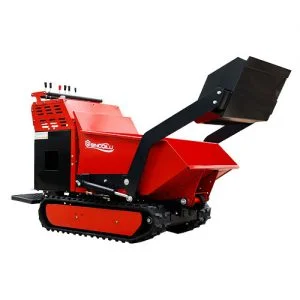
For a large-scale infrastructure development project, mini loader dumpers were employed to transport construction materials and equipment across challenging terrain conditions. The machines demonstrated superior performance in material movement and operational efficiency compared to conventional dump trucks.
| Metric | Mini Loader Dumper | Traditional Methods |
|---|---|---|
| Material Moved (m³) | 500 | 350 |
| Labor Hours Saved | 80 | 50 |
| Environmental Impact (%) | 20% reduction | – |
Conclusion
Mini loader dumpers represent a significant advancement in construction equipment technology, offering unparalleled efficiency, versatility, and operational benefits across diverse construction applications. Their ability to navigate tight spaces, coupled with robust performance capabilities, makes them indispensable assets for modern construction projects. As construction methodologies continue to evolve, mini loader dumpers are poised to play a pivotal role in shaping the future of construction efficiency and project management.
FAQ
Q: What types of attachments can be used with mini loader dumpers?
A: Mini loader dumpers can be equipped with a variety of attachments, including buckets, forks, cranes, and grapples. These attachments enhance their versatility and enable them to perform a wide range of construction tasks efficiently.
Q: How do small loader dumpers compare to traditional dump trucks in terms of efficiency?
A: Small loader dumpers generally offer faster cycle times and better fuel efficiency compared to traditional dump trucks. Their compact size and maneuverability contribute to reduced operational costs and increased productivity on construction sites.
Q: Are mini loader dumpers suitable for use in all weather conditions?
A: Yes, mini loader dumpers are designed to operate effectively in various weather conditions, including rain and snow. Their robust construction and traction capabilities enable them to maintain performance and productivity in challenging environmental conditions.
Q: What maintenance is required for mini loader dumpers?
A: Regular maintenance of mini loader dumpers includes checking hydraulic systems, inspecting tires, and servicing the engine to ensure optimal performance and longevity. Scheduled maintenance routines help minimize downtime and maximize operational uptime on construction sites.

